Group of Seven leaders warn China against aggression and Anthony Albanese hosts Quad defence pact summit
The most powerful democracies show an unprecedented co-ordination towards Beijing’s aggressive policies and the Australian PM’s Quad meeting is called a ‘solidarity’ display.
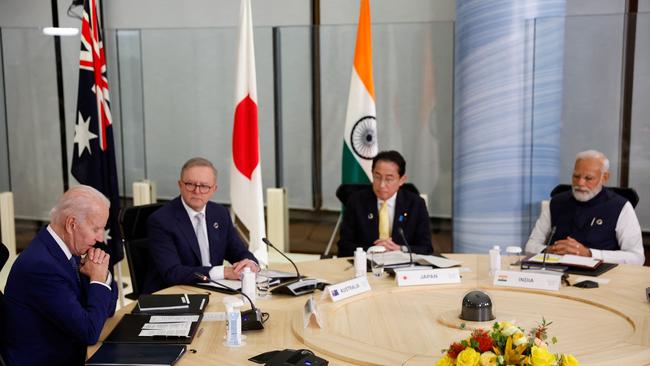
The Group of Seven has issued its strongest-ever condemnation of China’s aggressive stances hours before Anthony Albanese hosted a meeting of the Quad defence pact in Hiroshima, as the world’s most powerful democracies demonstrated an unprecedented co-ordination in their response to Beijing.
At the opening of Saturday evening’s Quad meeting – which had been scheduled for Sydney next week – US President Joe Biden predicted the four-country grouping would have historic significance.
“I think people are going to look back at this Quad, God willing, in 10, 20, 30 years from now and say, Gee, it changed the dynamic not only of the region but the world,” Mr Biden said in opening remarks before the closed-door meeting.
Prime Minister Fumio Kishida, who is hosting the G7 summit of rich nations in his family’s home city, said the international security environment had further deteriorated since Quad last year’s meeting in Tokyo, which was held weeks after Russia’s invasion of Ukraine.
“During this one-year period, Russia’s outrage has continued and the security environment has become even more severe,” Mr Kishida said.
The Japanese leader – who has repeatedly warned over the last 12 months that “Ukraine today may be East Asia tomorrow” – said it was “meaningful” that the group got together “to demonstrate to the world once again the solidarity of the Quad and our strong commitment to a free and open Indo-Pacific”.
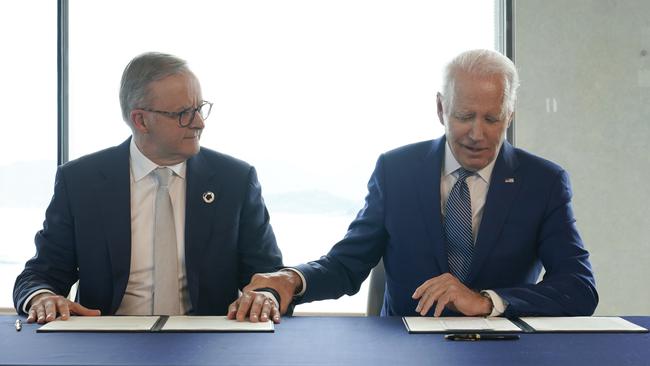
As he opened the evening meeting, Mr Albanese said the rejigged location was “an example of our resolve”.
He noted that one year ago, his first act as Australia’s Prime Minister was to fly to Tokyo for the Quad’s second leaders-level meeting.
“I can’t think of any better way to begin a prime ministership than a gathering of such important friends from our region.”
India’s Prime Minister Narendra Modi noted the proliferation of Indo-Pacific strategies and visions announced by countries in the region since their last meeting together.
“I believe the Quad will continue to work for the global good, for the welfare of our time and for peace and prosperity,” Mr Modi said, adding that he looked forward to hosting next year’s leaders meeting in India.
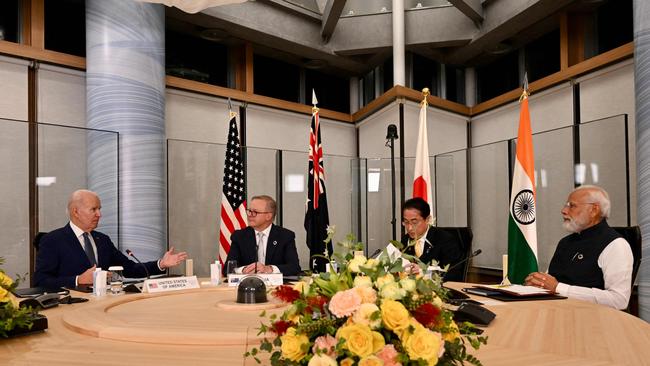
The Quad meeting capped off a day of unprecedented co-ordination on China policy by the world’s strongest democracies.
Earlier on Saturday, in their sixth bilateral meeting since Prime Minister Albanese was sworn in a year ago on Sunday, Mr Biden said he would ask the US congress to add Australian arms manufacturers as a “domestic source”, tightening their defence industries under the AUKUS partnership.
The G7 joint communique was issued earlier on Saturday afternoon, a day before the end of the three-day summit, revealing the group of liberal democracies’ current alignment on China policy.
“Our policy approaches are not designed to harm China nor do we seek to thwart China’s economic progress and development. A growing China that plays by international rules would be of global interest,” said the G7 leaders.
“We are not decoupling or turning inwards. At the same time, we recognise that economic resilience requires de-risking and diversifying.”
The communique contained the bluntest criticism ever agreed to by the group, which is made up of Canada, France, Germany, Italy, Japan, the UK and US.
It spanned Beijing’s economic coercion, threats of war against Taiwan, aggressive territorial claims in the South China Sea, human rights abuses in Xinjiang, Tibet and Hong Kong, interference activities which undermine democratic institutions, and a call to press Russia to stop its military aggression in Ukraine.
Hours earlier, Ukrainian President Volodymyr Zelensky landed in Hiroshima. He will personally address the G7 summit on Sunday.
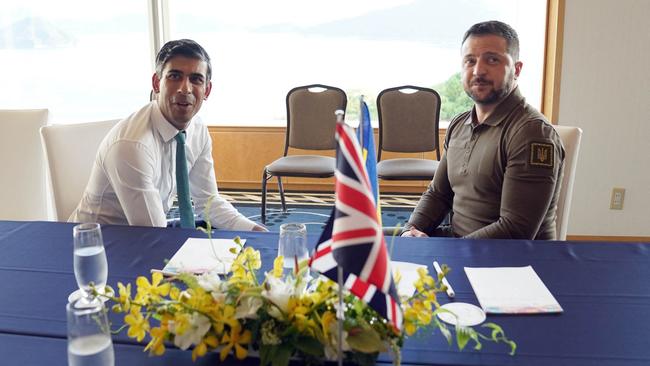
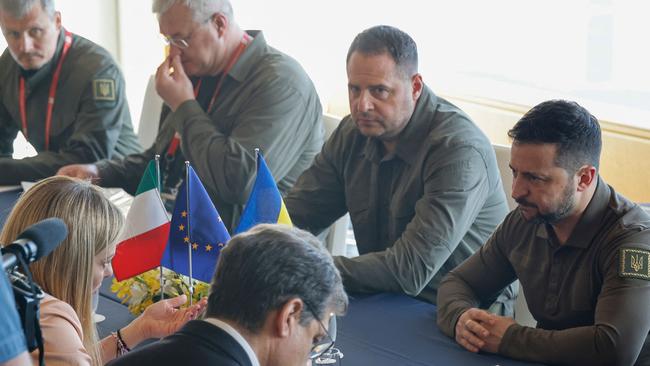
The G7’s firm wording on China echoed earlier remarks in a statement issued by President Biden and Prime Minister Albanese after a bilateral meeting on Saturday.
“I’m sorry I’m not taking a plane to Australia,” Mr Biden said, apologising for pulling out of what was scheduled to be a Quad leaders meeting next week in Sydney because of the US debt-ceiling crisis.
“I would have done exactly the same thing,” Mr Albanese said, adding: “All politics is local.”
Mr Biden responded: “All politics is local – but friendship is permanent.”
In their meeting, the two leaders declared that shared climate action was the “third pillar” of the alliance.
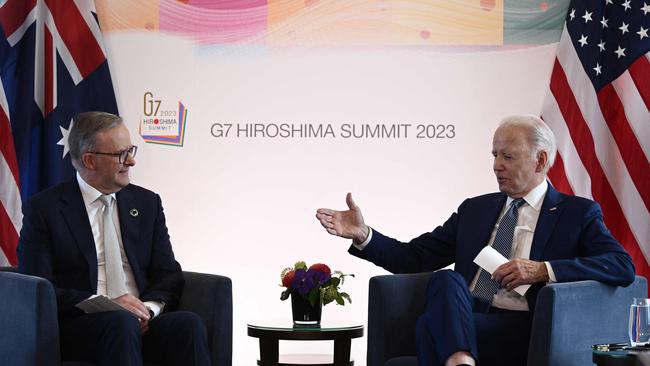
The US President also told the Prime Minister that he would ask congress to list Australia under Title 3 of the Defence Production Act, which would allow Australian defence firms to be treated the same way as America’s domestic industry.
“Doing so would streamline technological and industrial base collaboration, accelerate and strengthen AUKUS implementation, and build new opportunities for United States investment in the production and purchase of Australian critical minerals, critical technologies, and other strategic sectors,” the two leaders said in their joint statement.
More Coverage
Our enduring friendship with the United States demonstrates what’s possible when we work together.
— Anthony Albanese (@AlboMP) May 20, 2023
Today, @POTUS Biden and I signed a Statement of Intent that will make action on climate a key feature of our partnership. pic.twitter.com/iEl4P0Ccf7
The G7 is more united than ever. pic.twitter.com/ZEcyPpdr21
— President Biden (@POTUS) May 19, 2023



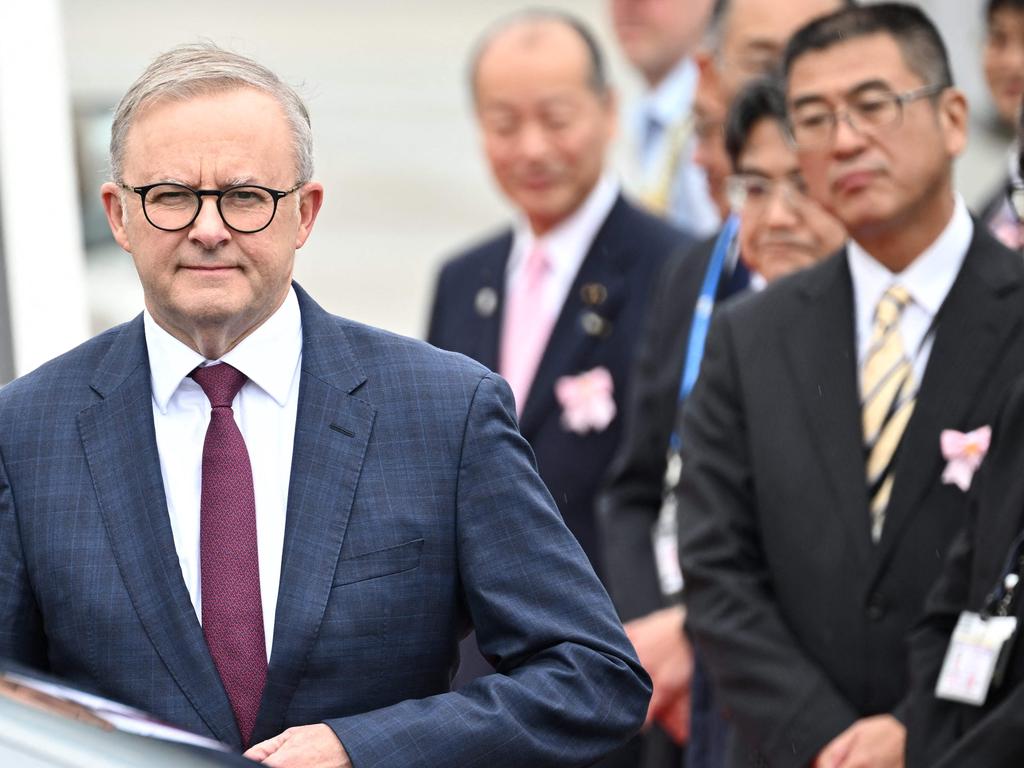
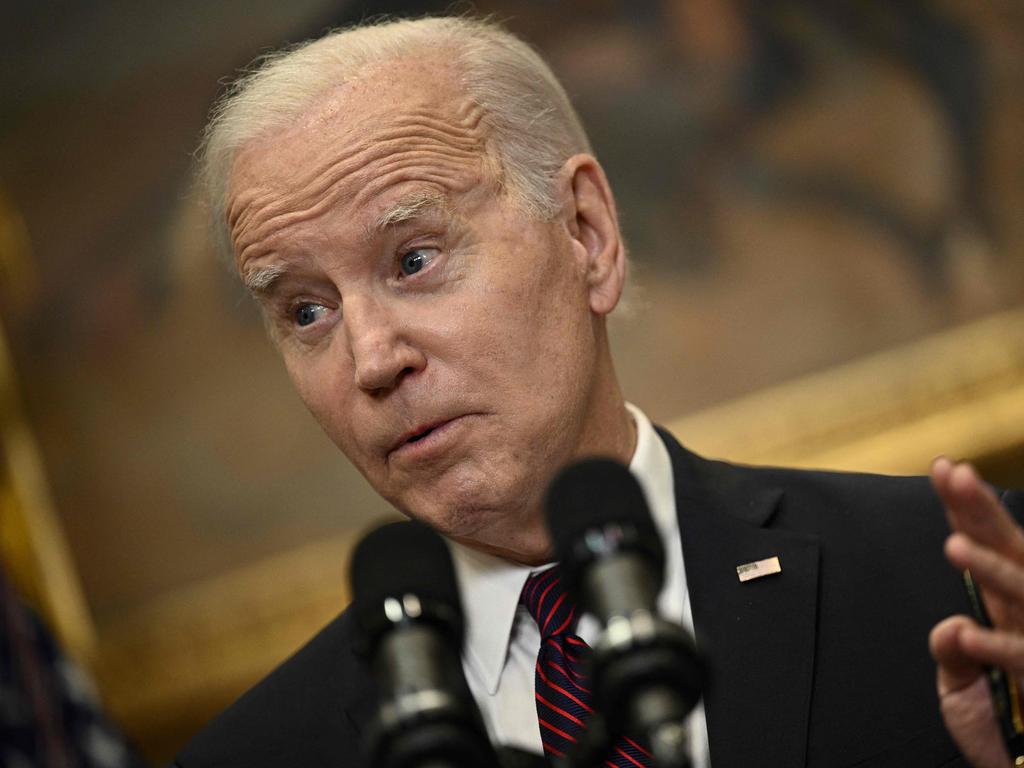


To join the conversation, please log in. Don't have an account? Register
Join the conversation, you are commenting as Logout